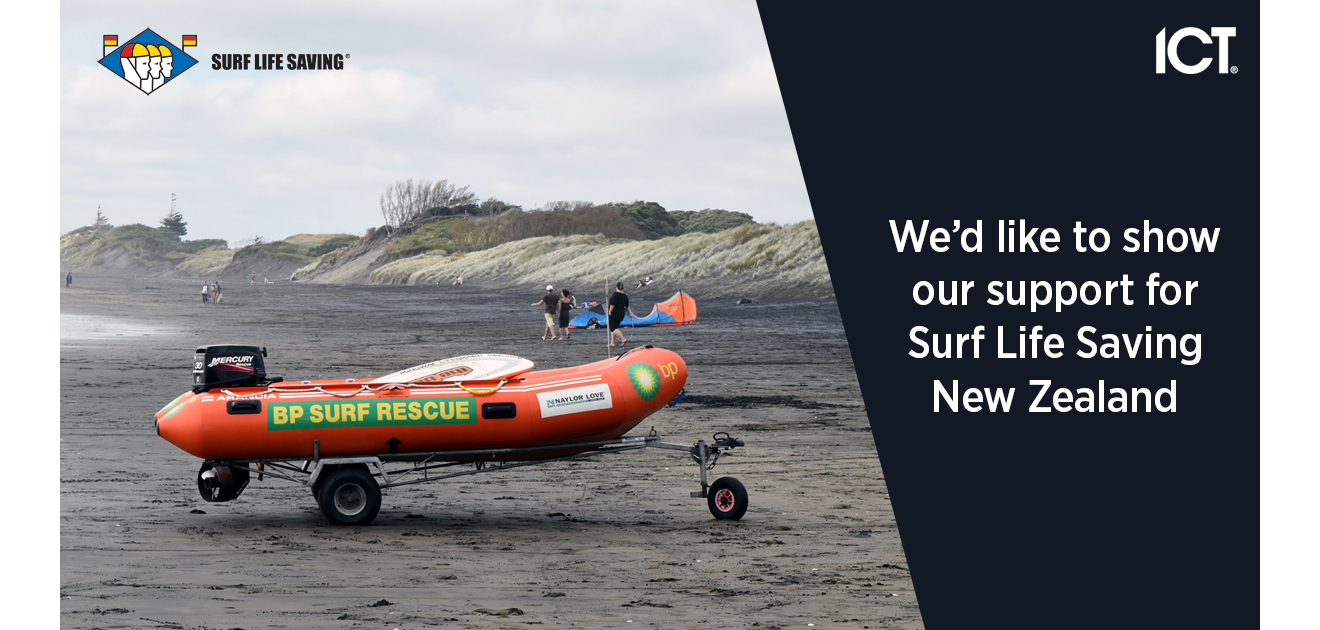
Supporting Surf Life Saving NZ
For most of us in New Zealand, summer means sunshine, spending time with friends and family, endless outdoor activities, and days at the beach swimming in the cool water. But by the end of summer, a handful of people who went to the beach to enjoy a day in the sun and surf will not come home. Hundreds of others will have been pulled from the sea by lifeguards after getting caught in a rip, swept out in rough conditions, or just being too exhausted to get back to shore.
Surf Life Saving has given thousands of people a second chance at life over the years. But saving lives isn't always the most challenging part of their job - it's keeping the lifeguards on the beach in the first place. Unlike other essential services, they receive no direct government funding, and the charity relies on the goodwill of thousands of volunteers, fundraising, grants and sponsorship to keep NZ beaches patrolled.
ICT would like to show our support for Surf Life Saving NZ and recently donated $5000 NZD to help our local lifeguards. We’d also like to extend a special thanks to all of the volunteers that give up their own personal holiday & family time to keep others safe on Aotearoa's beaches.
If you’d like to help keep Surf Life Saving afloat, there are many ways you can help.
There are also some things you can do to stay safe at the beach:
- Always swim between the flags when at a patrolled beach
- Don't overestimate your ability
- Keep young children within arm's reach at all times
- Never swim or surf alone
- Watch for rips – calm, deep patches of water close to shore with breaks either side; and rippled, discolored or foamy water with debris/sand
- If caught in a rip current, RELAX and float, RAISE your hand to signal for help, and RIDE the rip until it stops and you can swim safely back to shore
- Be smart around rocks. Wear a lifejacket while fishing, never stand on a rock that's already wet, never turn your back on the sea
- If in doubt, stay out of the water
- Be aware and don't panic – New Zealand's water temperatures are cold and can cause our bodies to go into shock where people can gasp, swallow water, burn energy and quickly lead to fatal drowning
- Spot someone in trouble? Call 111 and ask for the police








